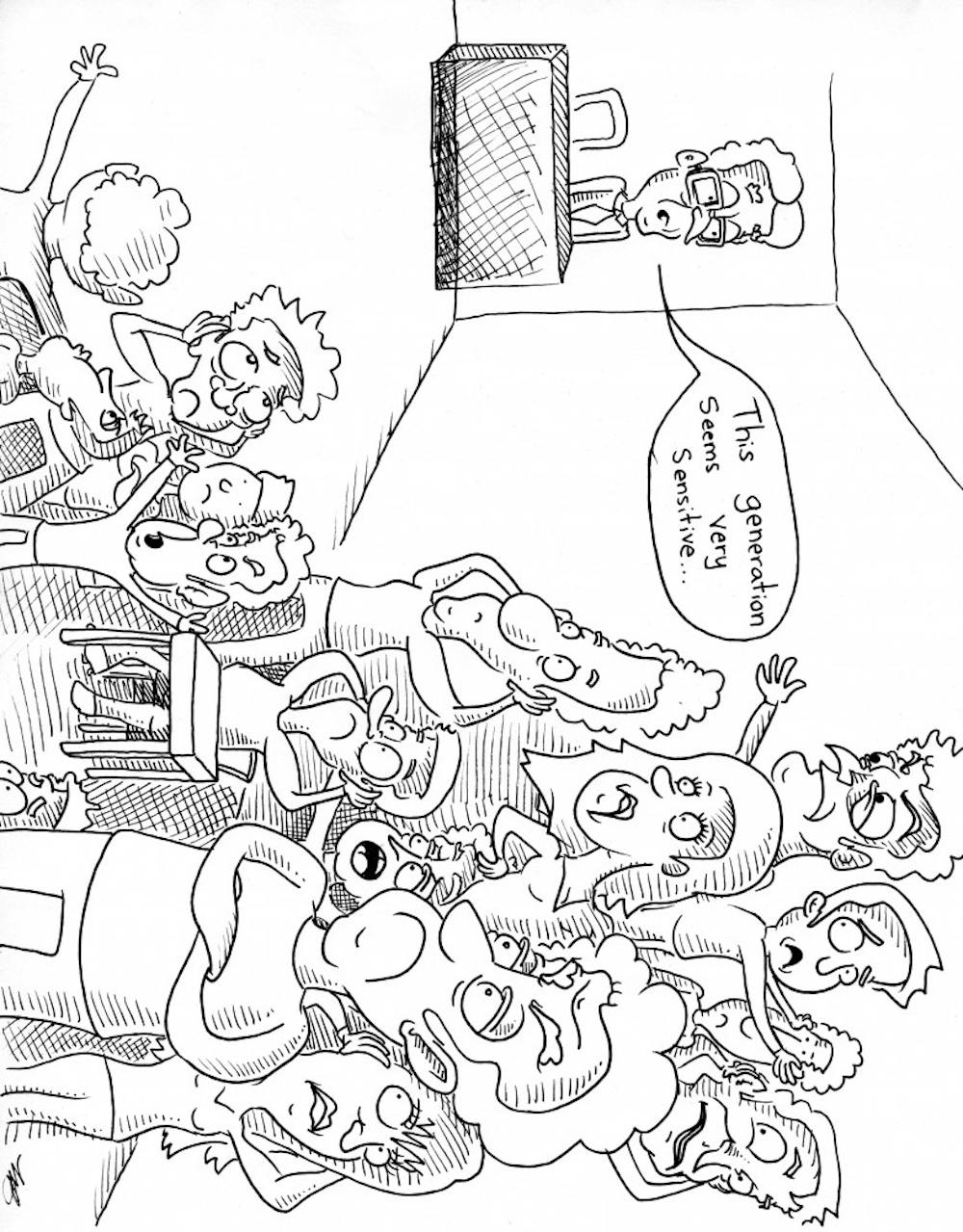Colleges, donors and students across the country are in an uproar about trigger warnings, campus safe spaces and freedom of speech.
The latest discussion began with a letter from University of Chicago Dean of Students John Ellison telling incoming freshmen that the university’s “commitment to academic freedom means that we do not support so-called 'trigger warnings,' we do not cancel invited speakers because their topics might prove controversial, and we do not condone the creation of intellectual 'safe spaces' where individuals can retreat from ideas and perspectives at odds with their own.”
We at The Spectrum acknowledge Ellison’s intentions, but we think he doesn’t understand our generation as well as he could. We wholeheartedly embrace the need for freedom of speech and the First Amendment – we implement it perhaps more than most students on campus. It’s vital to our reporting and we regularly use it as a defense against those who might want to muffle us. And, we defiantly defend the right for students, professors and visiting lecturers to come and explore provocative and disturbing topics on our campus. That’s what we’re here for. We want to be tested and challenged and forced to figure out what we believe.
Still, we believe trigger warnings serve a purpose and think more UB professors who teach controversial topics should consider implementing them.
Twenty-three percent of all female college seniors reported experiencing nonconsensual sexual contact over their four years at a university, according to a 2015 report by the American Association of Universities. At UB, with a population of about 30,000 students, about half of whom are female, that would be over 3,000 students. That is a lot of trauma.
And it doesn’t take into account abuse, other sorts of violent crime, the death of a loved one and the numerous terrifying real-life stories our classmates survive. If you can avoid causing someone pain – physical or mental – why not do it? If a student who tried to commit suicide will suffer a setback by listening to your lecture, is the information you have really worth the cost? Can’t that student quietly exit or just not show up for that lecture and face the consequences.
We are the first generation to face a conundrum about safe spaces and trigger warnings. We were also the first generation to have anti-bullying curriculums in middle and grammar school. Our whole lives we’ve been taught to stand up for others. To care. To help those feeling oppressed. That is what we feel we are doing here. It’s not about being hypersensitive; it’s about being considerate.
Trigger warnings don’t hinder freedom of expression or seek to make college campuses cozy dens of political correctness where professors are afraid to broach uncomfortable topics. They are a polite protection. A sensitive way to show respect for students and for professors to acknowledge that the young adults in their classes have had life experiences they can’t imagine.
Again, we are not saying the professor shouldn’t give the lecture. We are saying label the content – just like we at The Spectrum might label content we deem difficult, particularly violent or disturbing. That is not a violation of free speech. It’s an act of kindness.
At the moment, UB has no trigger warning policy in place. Professors choose their own way. We would like to see UB take a stronger stand, be a national trendsetter. Stand up for students and for options. That, after all, is the epitome of freedom.
When the conservative blogger Milo Yiannopoulos – who speaks out against gay rights even though he is gay – was paid to speak UB last May, some students felt threatened by his often racist, sexist and inappropriate remarks. We at The Spectrum supported his right to speak, although we find his rhetoric appalling.
Freedom of speech needs protecting. But so does the freedom to protect yourself from speech that will harm you or cause you to harm yourself.
The editorial board can be reached at news@ubspectrum.com





